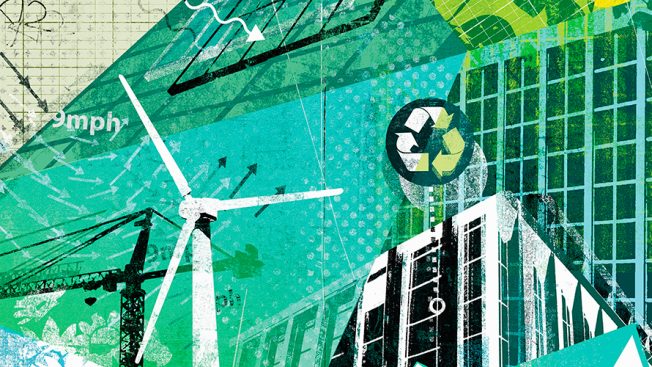Inspiration meets innovation at Brandweek, the ultimate marketing experience. Join industry luminaries, rising talent and strategic experts in Phoenix, Arizona this September 23–26 to assess challenges, develop solutions and create new pathways for growth. Register early to save.
The world is moving toward a more sustainable future. At this point in human history, there’s simply no alternative. Either we do this and do it fast enough to confront the crisis, or we face some pretty dire consequences.
It will take a concerted effort from every corner of the globe to realize true sustainability. In our industry, that means every brand, every agency and every vendor will have to pitch in. While that sounds daunting, we are thankfully getting to the point where sustainability isn’t just a feel-good cause—it’s also good business sense. Doing things in a way that generates less waste, uses fewer materials and consumes less energy not only makes consumers happy but it also makes the accounting department happy.
The truth is that everything we do is going to have to change as part of this conscious movement. Here are a few ways the brand experience industry is adjusting to achieve that goal.
Designing for perpetuity
Perpetuity is the highest concept of sustainable design. It’s the idea that we can design systems and processes that can run forever with little to no waste or byproducts. Nobody has quite gotten there yet, but many are trying. The future we’re headed toward is designing product and service ecosystems that keep more materials from winding up in a landfill.
Rethinking our resources
Design is the core functionality to solve the problem. Design concepts and formats—in effect, the way that we conceive of events—is directly responsible for the way that we use materials, ship them, install them and, most importantly, how we dispose of them. For instance, lighter materials consume less fuel to transport and assemble. It seems like a small change, but for a worldwide provider that does thousands of shows, those little changes can move the needle in a massive way.
Let’s consider this worldwide provider for a moment, a major events industry player that has offices all over the globe. The sheer scale of the company enables it to play a unique role in designing a sustainable future for the entire industry. It builds walls for thousands of shows. If those walls aren’t reused, they wind up in a garbage dump somewhere. Instead, it’s about getting ourselves to the point where all materials can either be recycled, reused or broken down and repurposed. As a category leader, this worldwide provider has a responsibility to the industry and the world at large to think in this new way. It’s better to build 100 houses using discarded materials from a show than to send 100 tractor trailers to the landfill.
Keeping it real
Greenwashing is something that happens to brands that are inauthentic about their commitment to sustainability. Businesses need to lead with action, not words. Don’t market what you’re going to do; do what you’re going to do, and let your actions speak.
It’s so easy to get out ahead of what you’ve actually accomplished, but in the age of internet transparency you will lose credibility. And by all means, avoid talking about things that you’re not actually doing. British Petroleum had an amazing marketing campaign about sustainability, but their practices told a different story. The brand has taken a hit from which it may never recover.
If you’re authentically working toward sustainability and your brand is seen to be systematically moving in the right direction, you will generate a tremendous amount of goodwill. If you’re faking it, the market will punish you. That’s the new reality.
Nobody wants to be perceived as the backward, old-fashioned, hugely wasteful organization. At the same time, many organizations are risk-averse, and despite all evidence to the contrary, sustainability is still seen by some as an expensive risk. Nothing could be further from the truth.
Still, the issue is very complex. We’re an industry of celebration and exuberance, and we create a spectacle that is disposable. But my philosophy is that sustainability is not about doing less or sacrificing what we’re doing, it’s about doing more of what we love by using less of what we need. And all the things we do that aren’t sustainable are business opportunities. Someone’s going to figure out how to do it, and when they do, everyone’s going to want it.
If we roll up our sleeves and get to work, we can be the poster children for the new world.








